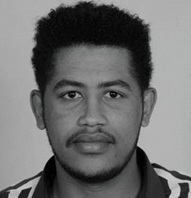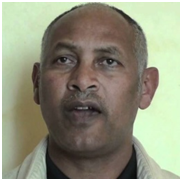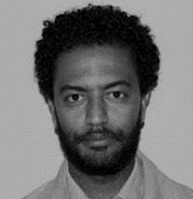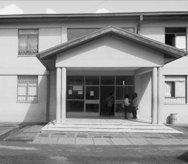OVERVIEW
The Chair of Housing is one of the most active chairs of EiABC in areas of teaching, research and community services. Since its establishment in 2010, the chair has been responsible for teaching undergraduate and postgraduate courses related with housing, and neighbourhood design and planning. The chair is also responsible for coordinating a Masters Programme in Housing and Sustainable Development (HASD) which also started during the academic year 2010-2011. Parallel to its teaching contribution, the Chair is also involved in research projects and community services such as: Urban Renewal and Income-Generating Spaces for Youth and Women, and the Sustainable Rural Dwelling Unit (SRDU), done in collaboration with local and international partners.
ESTABLISHMENT
The Chair of Housing is established in 2010 as part of the reform in the Technology Faculty (South) of the Addis Ababa University. It started with five members that are experts in the areas of housing and spatial developments.
RESPONSIBILITY OF THE CHAIR OF HOUSING:
- Ensuring that the teaching-learning process is focused on academic principles that are up to date and emphasize research and an enquiry-based approach
- Focusing on bridging the gap between theory and practical knowledge through strong partnerships between the academic staff, students and industrial partners
- Planning, implementing and monitoring research activities
- Autonomously administering budget allocated by the Institute and funds obtained from external, third-party research and development activities
- Negotiating and securing funding in addition to the budget from the Institute, the university as well as potential external funding sources
- Initiating and executing interdisciplinary research and the development of centres of excellence
- Integrating student research and projects in order to increase their relevance and ensure that the results of such efforts benefit the stakeholder sponsors
- Regularly conferring with members of the unit on such matters as the courses they will teach, their scheduling and the selection of textbooks and laboratory manuals
- Periodically revising the course listings, course contents, the scheduling of courses and securing supplementary teaching materials
- Recruiting and selecting new staff members, counselling of new and junior staff members, carrying out necessary performance assessments and making arrangements for the professional development of all staff
- Allocating staff workloads, taking the balance of the staff member's engagement in teaching, research, consulting, scholarly publication, committee activity and relevant off-campus activities into account
NUMBER OF PROGRAMS THE CHAIR OF HOUSING INVOLVES:
Undergraduate (Involved in courses related to Neighbourhood Design, Inner-city Redevelopment and Introduction to Housing):
- BSc in Architecture
- BSc in Urban and Regional Planning
Graduate (The Graduate Program is coordinated by the Chair of Housing):
- MSc in Housing and Sustainable Development
HASD (MSC PROGRAMME IN HOUSING AND SUSTAINABLE DEVELOPMENT)
Currently, the Chair of Housing is involved in both the postgraduate and undergraduate programmes of EiABC in delivering courses. However, in terms of management, the Chair is responsible for coordinating an MSc Programme in Housing and Sustainable Development (HASD). This programme started in 2010 with the establishment of the Chair.
Objective of the Programme:
The general objective of the programme is, on the one hand to deal with the challenge of ever increasing housing demand and on the other hand to develop capacity to address the improvement of the existing sub-standard housing settlements. Though the programme takes the design strategies of housing as its central element its aim is to equip students in such a way that they address the housing issue in its entirety by taking into consideration both theoretical and methodological - key issues of housing. Also, it is the primary objective of this programme to prepare professional leaders in Housing and Sustainable Development, who will be both highly competent practitioners and qualified researchers.
Graduate Profile:
Including the current students, 70 students have registered in this programme, which includes six exchange students from University of Jyväskylä, Finland. The thesis of the students include the physical, economic, social and environmental dimensions of housing within the framework of sustainable development.
The student who completes the programme of Housing and Sustainable Development will be able to exercise Professional Competence, Methodological Competence, Social Competence and Personal Competence. Therefore, the graduate student is able to:
- Define issues, solve problems and implement strategies both with regard to the development of new housing and the upgrading of existing settlements guided by the principles of sustainable development
- Design appropriate house and settlement forms that are in tune with the social, physical, economic and cultural context of places.
- Develop infrastructure standards that are efficient and sustainable.
- Involve citizens in the design and planning of housing processes, which affect their daily life.
- Advance knowledge and education concerning housing, appropriate technology and sustainable development.
- Advise policy makers with regard to policy, institutional and legal frameworks and the FINANCING
 of housing
of housing - Undertake professional real world experiments in collaboration with local residents, public agencies, private consulting and construction forms and other private and non-profit organizations
- Advance knowledge and progress through scholarly and applied research.
Courses:
Generally, the M.Sc. Programme in Housing and Sustainable Development (HASD) has two types of courses that spread through the three semesters of the programme period.
- Theoretical courses: The method of teaching will be through lectures, seminars, workshops, presentations and study visits. Students will be required to write essays and present their findings in class.
- Project based courses or studios: These courses explore real life cases in areas of housing and sustainable development. Students will be given raw data, or asked to collect data from sites and analyze them. They will also devise strategies to solve identified problems, and prepare project proposals which, if implemented, could solve the assessed problems.
Students will present their work in seminars and workshops which could be organized within or outside the campus. The critics will be their instructors and professionals with significant knowledge on the study subject and location of the project.
A total time for the programme is three semesters. Students will take ten professional and common courses are distributed within the study time of two semesters, i.e. five courses per semester over two semesters (2 common courses and 8 professional courses with a total of 30 credit hours/ 64 ECTS credit point). The third semester is totally devoted to their research based design thesis project in the area of Housing and Sustainable Development (Pass or Fail/ 30 ECTS credit points).
| HASD Common Courses Shared with Other Programs | |
| 1. | Presentation Techniques in Design & Planning |
| 2. | Research Methods and Use of Appropriate Software |
| HASD Professional Courses | |
| 3. | Introduction to Housing |
| 4. | Housing and Sustainable Development |
| 5. | Form and Function of House and Settlement |
| 6. | Economics and Sociology of Housing |
| 7. | Housing Policy, Institutions and Legal Framework |
| 8. | Project Design and Real Estate Management |
| HASD Studio Courses and Research Project | |
| 9. | Studio I: Integrated Neighbourhood Design |
| 10. | Studio II: Integrated Housing and Inner-city Redevelopment |
| 11. | Thesis: Student Research Project |
Admission Requirements:
This HASD programme admits a maximum 20 students each year. Graduates who have completed their first degree in architecture, urban design and planning or other fields of spatial design and planning may be admitted to the programme. Spatial design ability is a must. Placement will be on competitive basis; candidates who have good academic results and relevant work experiences will be given prior consideration. Candidates must also fulfil all requirements of the EiABC for admission.
Members


 Wubshet Berhanu [Asso. Prof]
Wubshet Berhanu [Asso. Prof]
 Biruk Kebede [MSc]
Biruk Kebede [MSc]

Location / address
 EiABC, Chad Street, Lideta Sub city, next to the Federal High CourtUrban Building, First FloorSouth Campus – LidetaNew BuildingP.O. Box 518Addis Ababa – Ethiopia
EiABC, Chad Street, Lideta Sub city, next to the Federal High CourtUrban Building, First FloorSouth Campus – LidetaNew BuildingP.O. Box 518Addis Ababa – Ethiopia
